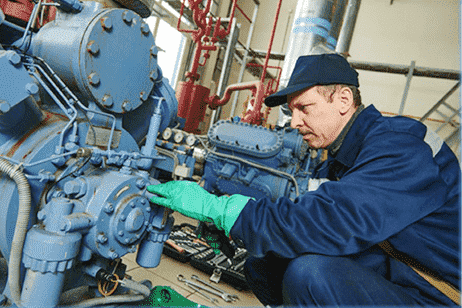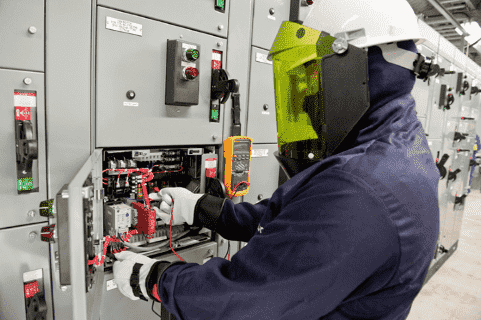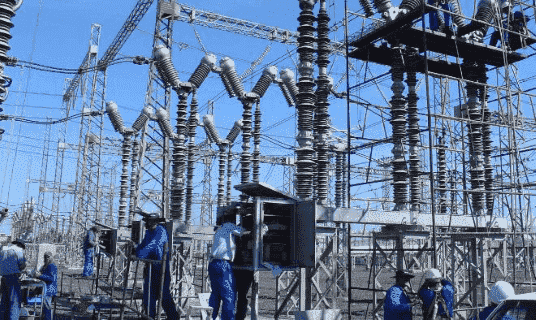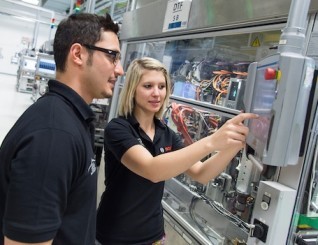COURSE OVERVIEW
EE0170 : Generator Excitation Systems & AVR: Selection, Commissioning, Operation, Maintenance, Testing & Troubleshooting

OVERVIEW
| COURSE TITLE | : | EE0170 : Generator Excitation Systems & AVR: Selection, Commissioning, Operation, Maintenance, Testing & Troubleshooting |
| COURSE DATE | : | Aug 05 - Aug 08 2024 |
| DURATION | : | 4 Days |
| INSTRUCTOR | : | Dr. Mike Tay |
| VENUE | : | Al Khobar, KSA |
| COURSE FEE | : | $ 4500 |
| Request For Course | ||
OTHER SCHEDULED DATES
| Date | : | May 11 - May 15 2025 (5 Days) | Location | : | Dubai, UAE | Classroom Fee (US$) | : | $ 5500 | Course Info |
| Date | : | Aug 10 - Aug 14 2025 (5 Days) | Location | : | Al Khobar, KSA | Classroom Fee (US$) | : | $ 5500 | Course Info |
Course Description
This practical and highly-interactive course includes real-life case studies and exercises where participants will be engaged in a series of interactive small groups and class workshops. Excitation systems directly affect power system stability where generators are large, connected with long lines, at sensitive voltage locations, or in systems with local or intertie oscillations. Excitation system reliability and availability can be a matter of skilled routine maintenance activity and proficient troubleshooting capability. Proficient troubleshooting is greatly aided by a solid operational understanding of the excitation system and its voltage regulator. This course is designed to cover the excitation system design, commissioning, operation, maintenance, performance analysis, testing, tuning, repair and troubleshooting. The course will address the adjustment of excitation systems for high-initial response excitation using a PID controller.The course will provide participants with the necessary knowledge to maintain, repair and calibrate an excitation system together with the automatic voltage regulator (AVR). This includes using effective routine maintenance practices, knowing what checks may be performed on-line and how to perform these checks without causing an equipment shutdown, increasing the likelihood of accurate problem diagnosis by thoroughly understanding how the equipment operates, increasing the likelihood of accurate problem diagnosis by understanding any given circuits impact upon operations; ie., quickly linking the symptom(s) to the faulty circuit, verifying suspected faulty circuit by analyzing voltage levels and/or signal traces, and understanding the necessary calibrations, after the faulty part has been replaced, including how the calibrations are performed.
TRAINING METHODOLOGY
This interactive training course includes the following training methodologies:
LecturesWorkshops & Work Presentations
Case Studies & Practical Exercises
Videos, Software & Simulators
In an unlikely event, the course instructor may modify the above training methodology for technical reasons.
VIRTUAL TRAINING (IF APPLICABLE)
If this course is delivered online as a Virtual Training, the following limitations will be applicable:
| Certificates | : | Only soft copy certificates will be issued |
| Training Materials | : | Only soft copy materials will be issued |
| Training Methodology | : | 80% theory, 20% practical |
| Training Program | : | 4 hours per day, from 09:30 to 13:30 |
RELATED COURSES

EE1030 : Certified Electrical Safety Compliance Professional (NFPA - CESCP Exam Preparation Training)
- Date: Jan 05 - Jan 09 / 3 Days
- Location: Al Khobar, KSA
- Course Details Register

EE0250 : Electrical Distribution Systems - Fundamental
- Date: Jan 05 - Jan 09 / 3 Days
- Location: Istanbul, Turkey
- Course Details Register

EE0050 : HV/MV Substation Design, Installation, Commissioning, Testing, Operation, Control & Maintenance
- Date: Jan 05 - Jan 09 / 3 Days
- Location: Doha, Qatar
- Course Details Register

EE1002 : Classification of Locations for Electrical Installations at Petroleum Facilities (API 500/ API 505/ API RP 14FZ)
- Date: Jan 05 - Jan 09 / 3 Days
- Location: Doha, Qatar
- Course Details Register
